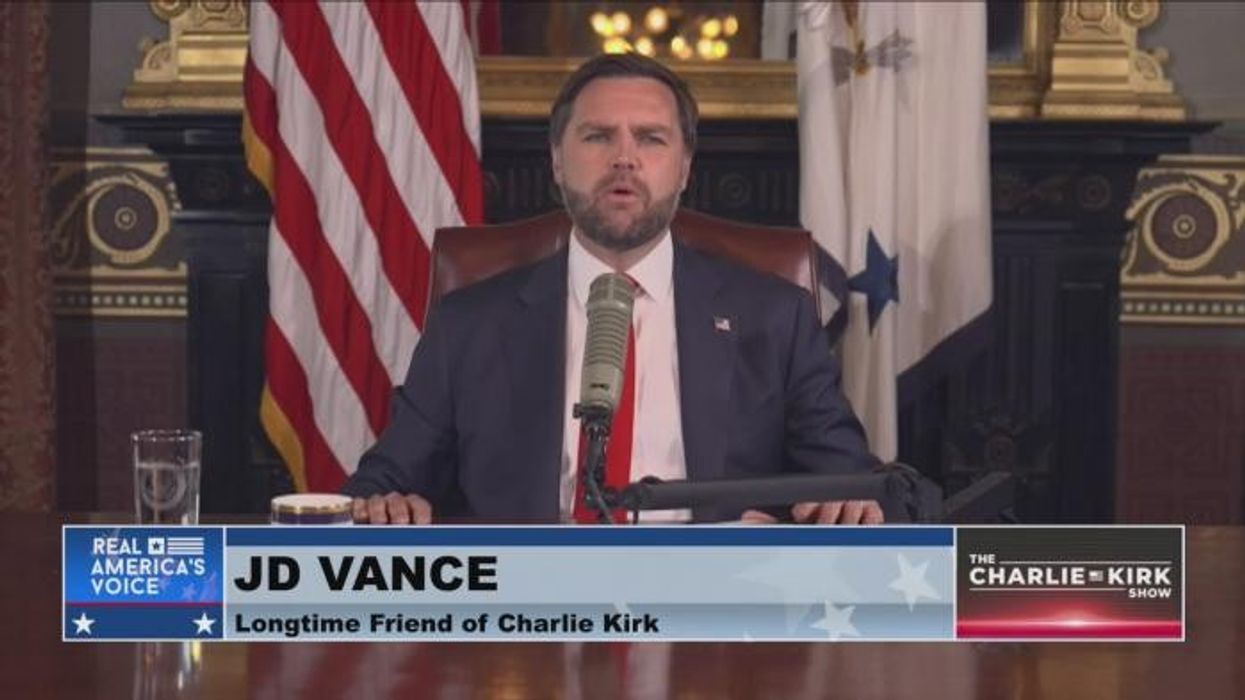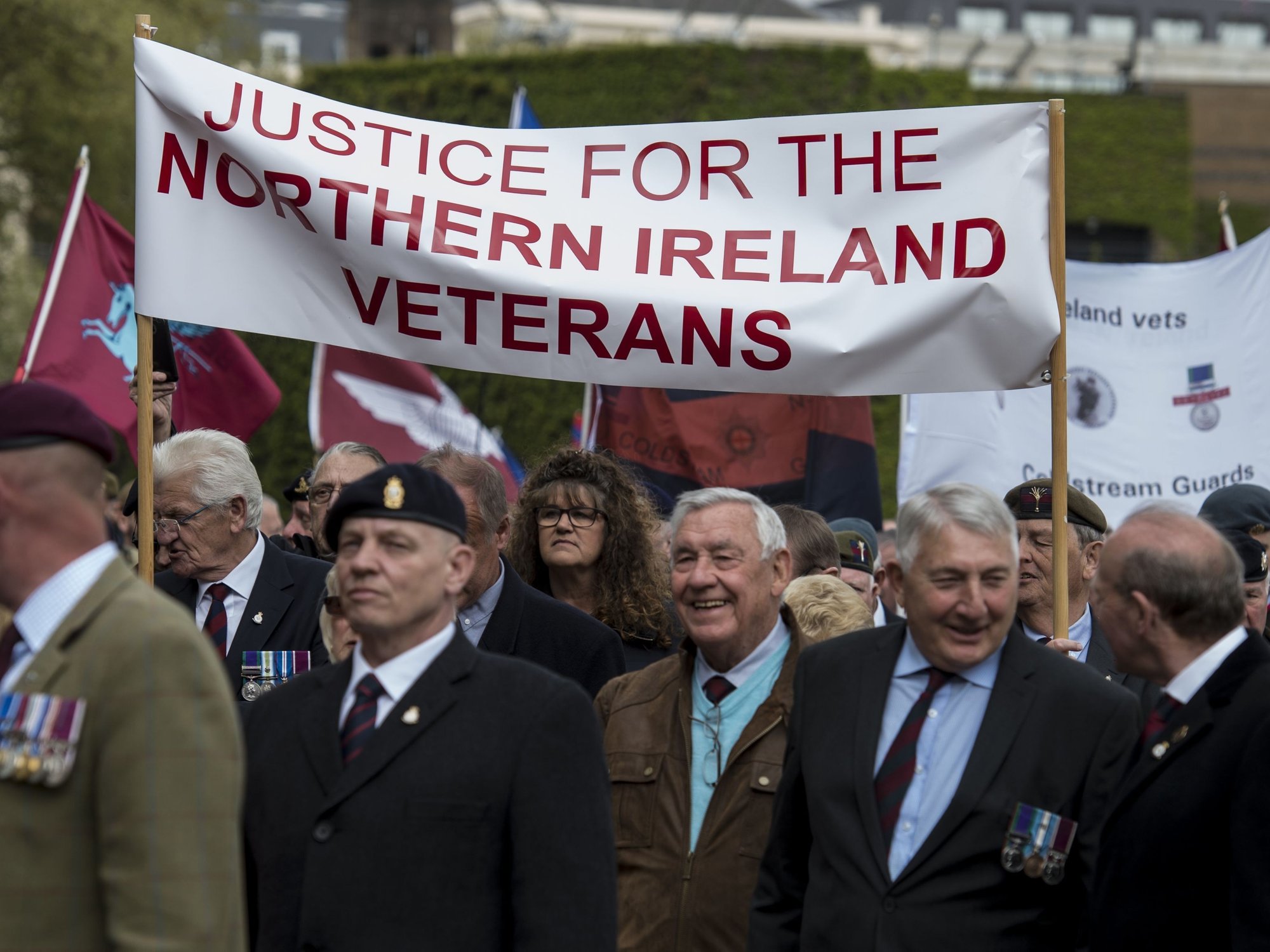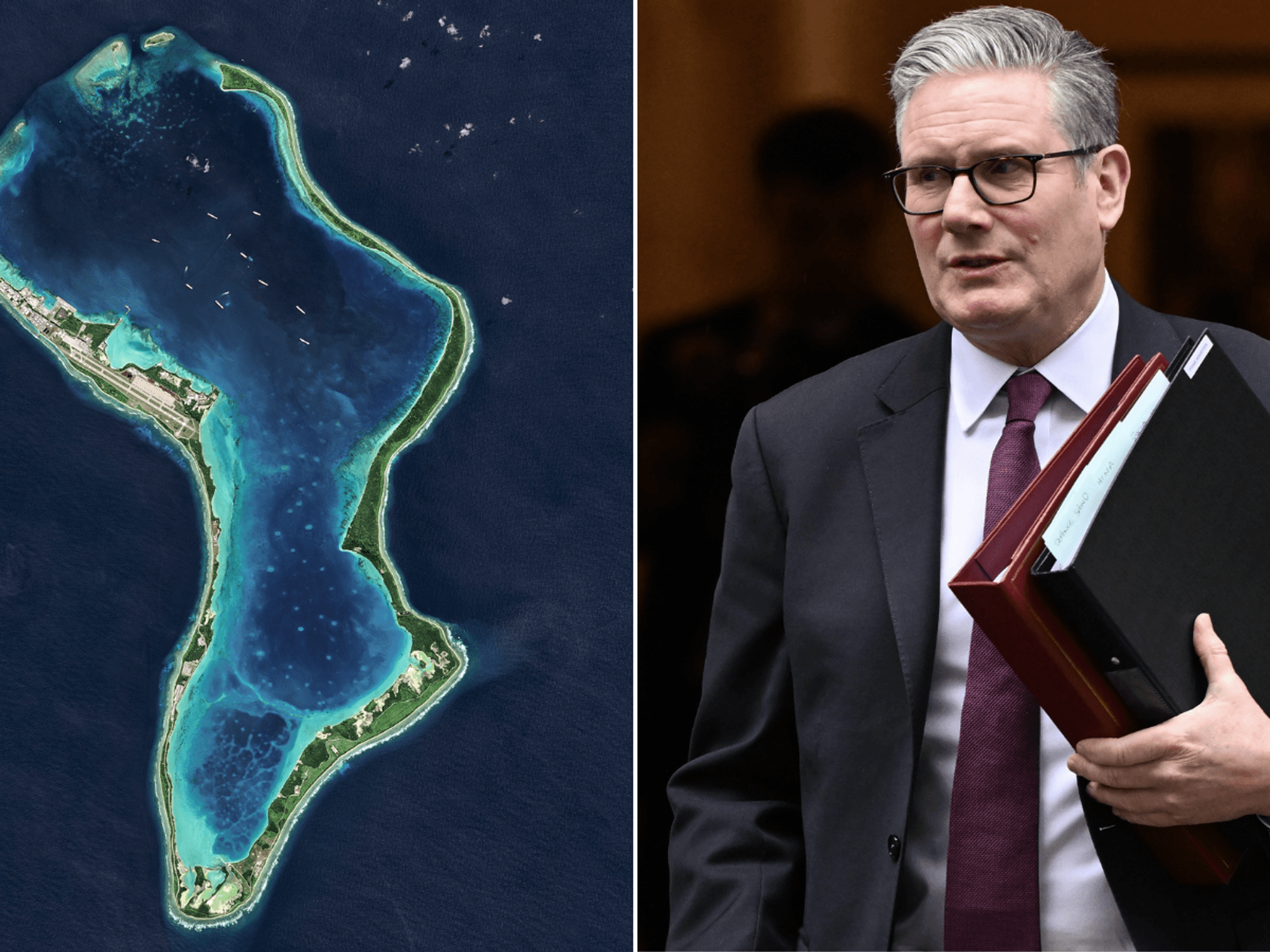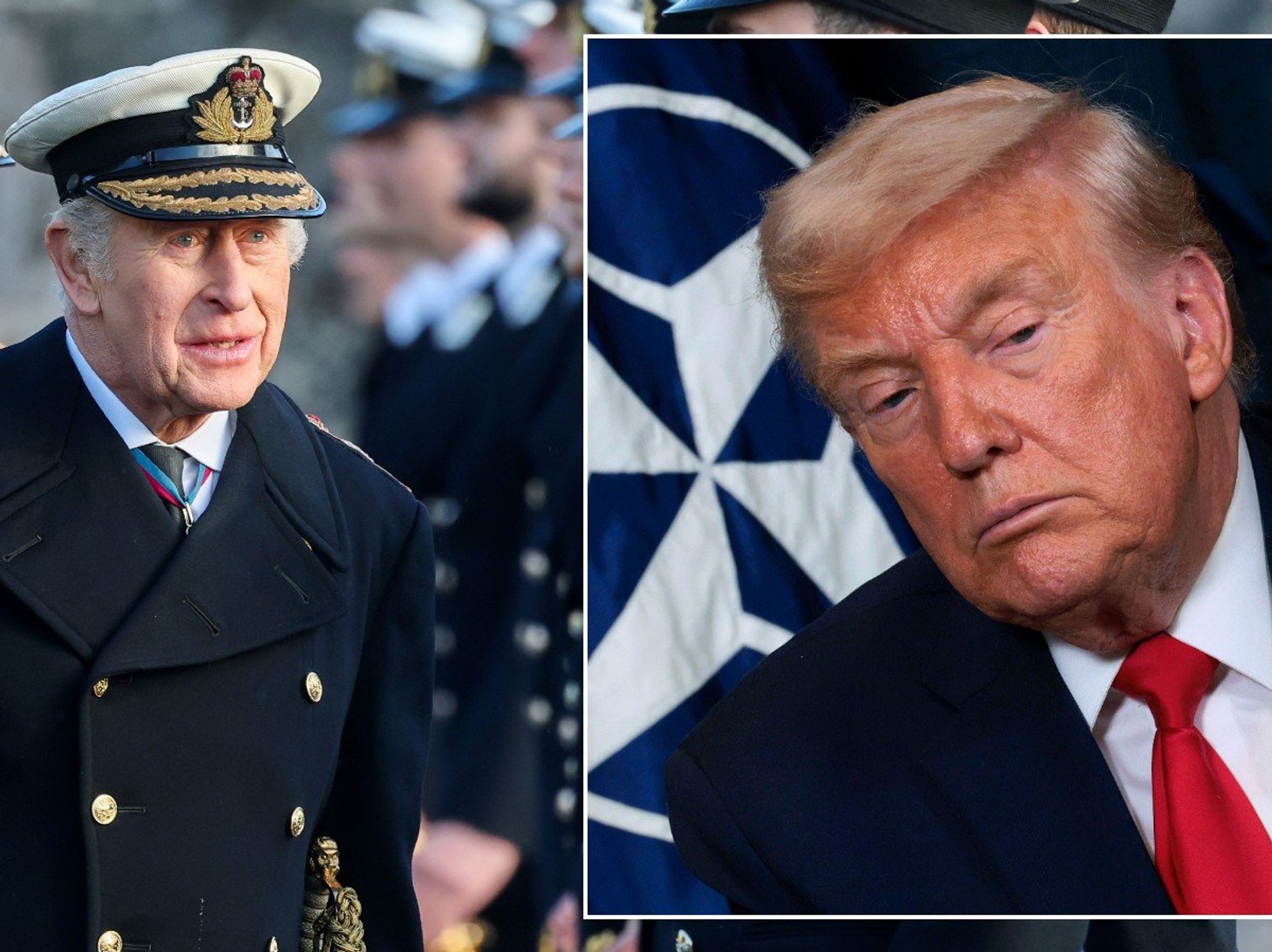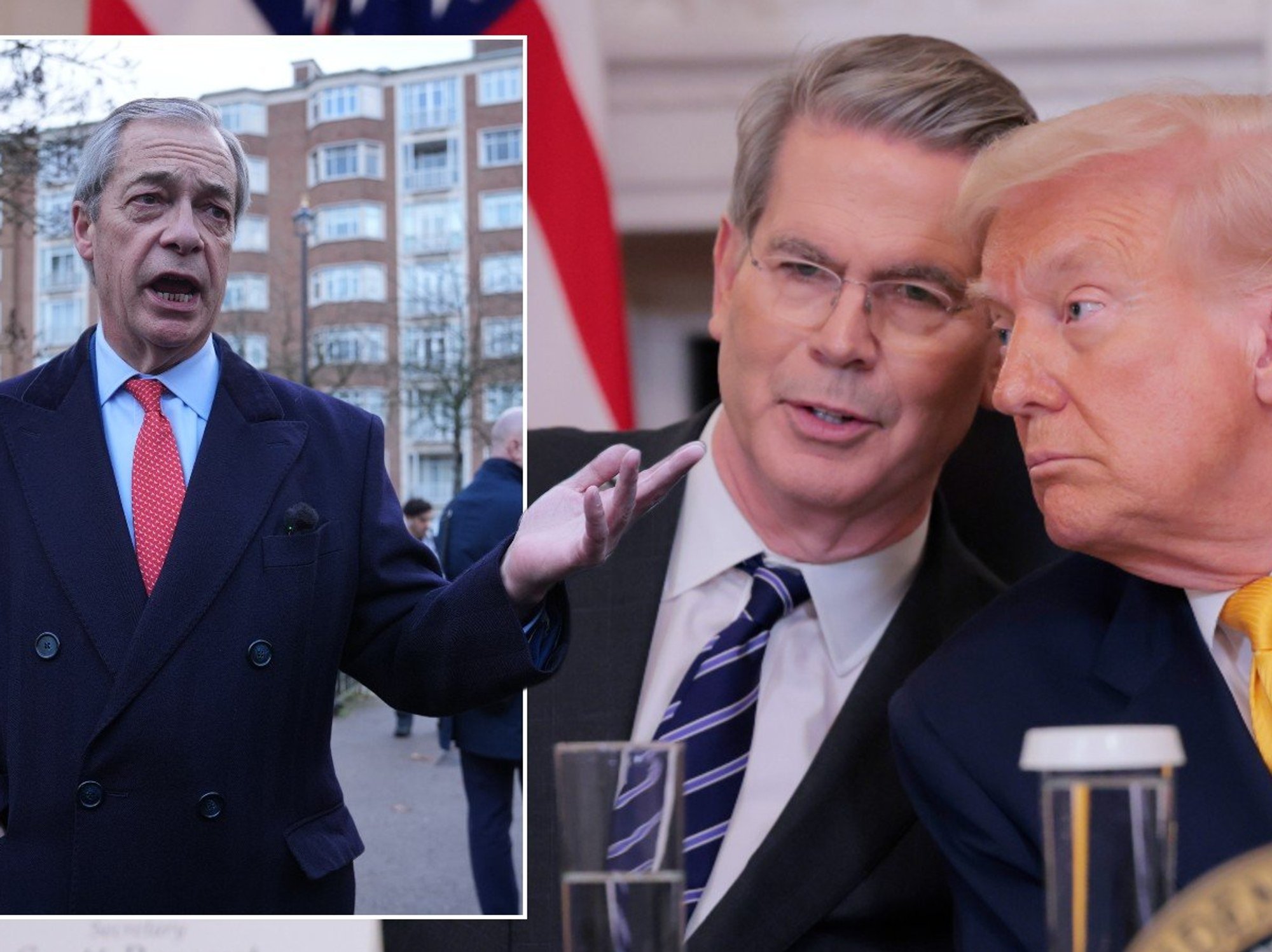Charlie Kirk's assassination is the most clarifying moment since Brexit — only much worse — Colin Brazier
The response has been an appalling epiphany, writes former broadcaster and columnist Colin Brazier
Don't Miss
Most Read
Trending on GB News
There is a particular category of valour that humbles all other kinds. It is the bravery of those who fight for others with little expectation of survival. In recent days, they have been on our thoughts.
The fighter pilots of the Battle of Britain, remembered 85 years on. And, on the anniversary of 9/11, the hundreds of New York firemen who perished as the Twin Towers collapsed around them.
Most of us will never be tested like this. To destruction. But there are other types of conflict which demand a different, if lesser, kind of courage: the heroism demanded of us by politics. Because sometimes politics will not take no for an answer. It forces us to stand on one side of the aisle or the other. Wear a lockdown mask, or not.
Vote to leave the EU, or not. The choice is hard to avoid, at least among friends, some of whom we run the risk of losing, depending on whose side we take.
Certainly, in the run-up to Brexit my late wife and I argued with a couple we had known for many years and to whom we never spoke again. That will strike some readers as pathetic. But Brexit, for me and millions like me, was a clarifying moment.
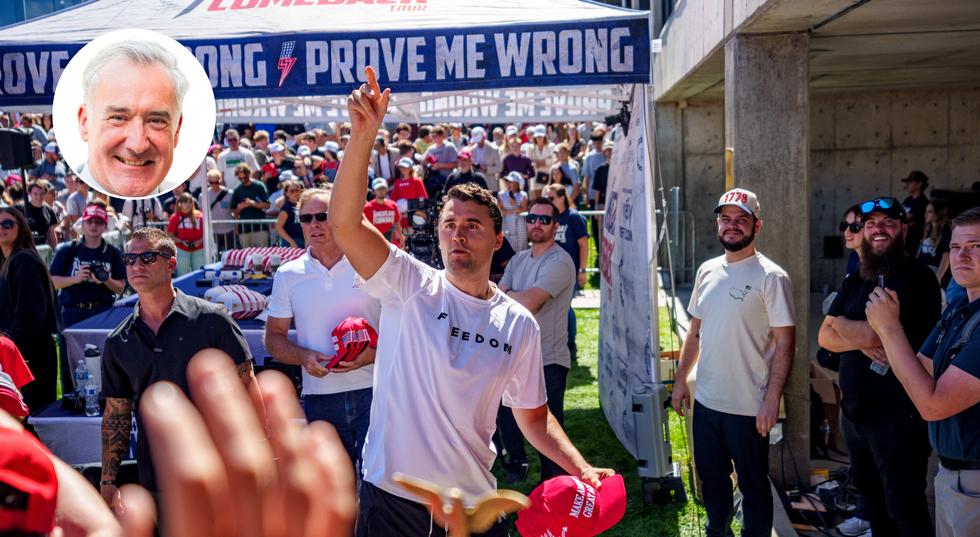
Charlie Kirk's assassination is the most clarifying moment since Brexit — only much worse — Colin Brazier
|Getty Images
I’d spent years at Sky TV bemoaning the growing apathy of voters. Interviewing MPs the morning after by-elections, asking why turnout was so low and wondering whether democracy was knackered.
But then came Brexit and the realisation that many people had been energised and were ready to make a stand against a corrupt system. And that lots of others would use almost any means of blocking their decision.
Something similar has happened in recent days. Except that the murder of Charlie Kirk has been more than a clarifying moment for many of us. Rather, it has been an awful epiphany.
We expected condemnation of the murder of a father of two young children to be universal. Instead, it was selective. Worse, it was deeply, profoundly one-sided.
As with Brexit, families have been divided. The reaction of some of my own twenty-something and teenage children has been instructive. One was in tears; one was ironical, another quietly angry.
And, as with Brexit, there has been a generational divide. Within the English-speaking online world, Charlie Kirk was reviled or revered by the young, but rarely ignored or unknown.
Older commentators, perhaps those without the link to youth culture provided by children, seemed baffled by all the fuss. But, being self-important, they felt the need to offer a view regardless of their ignorance.
The Mirror’s Kevin Maguire, 64, seemed to infer that Kirk was somehow the author of his own doom when he wrote on X: “US Far Right Trump champion Charlie Kirk, shot dead tonight, opposed gun control.”
Former Blair spin doctor Alastair Campbell, 68, had to retract claims that Kirk was in favour of stoning gays to death. And former Sky heavyweight Adam Boulton, 66, whined: “Can’t believe all this media coverage of Charlie Kirk. It’s America’s issue, not the UK’s.”
They all misjudged the mood. On X, I reminded Boulton that when he and I worked at Sky TV, the company was convulsed by the killing of George Floyd, an American, and that maybe, therefore, it wasn’t so strange that Kirk’s death should be given so much coverage, particularly because Kirk had actually spoken in Britain on campus and elsewhere. My post hit a nerve (and almost one million views).
We have come to expect no respect for the dead on social media. But it was still depressingly enlightening to see how many users of Bluesky - the ‘kind’ alternative to X (formerly known as Twitter) - suggested that Kirk should “Rest In Piss”.
Additionally, numbing was the willingness to weaponise Kirk’s assassination In Real Life.
The incoming president of the Oxford University Union, a young man who had recently debated with Kirk in person, now seemed to be celebrating his murder.
And in front of a crowd, the singer Bob Vylan, he of ‘Death, death to the IDF’ infamy, was recorded at one of his concerts, noting that “If you chat shit you will get banged [shot].”
Where does all this take us? To compare the impact of Charlie Kirk’s death to Brexit may seem like hyperbole, but it’s not as wild an assessment as it might seem. Brexit became a process, not an event. It did not stop with the vote. Millions of Leave voters, many of whom were utterly disengaged from politics, were radicalised. Their frustrations at efforts by the establishment to demonise them spawned, first, the Brexit Party and, ultimately, Reform.
By the same logic, the assassination of Charlie Kirk does not end with his funeral. Millions of younger people, some thoughtful, some thoughtless, have been touched by his death. They have seen classmates and celebrities dance a merry jig on Kirk’s grave.
They have sought out the videos which reveal - at times - a refreshingly nuanced and compassionate free-speech preacher. And they have taken what they have seen and heard from Kirk and set it against the bile and spleen of his digital detractors.
They see a man more sinned against than sinning and, like those Brexit voters of a decade ago, feel compelled to make a choice. Are you with the man martyred for his beliefs, or those who would mock, even justify, his slaughter?
For what it’s worth, these are some of what I think the consequences of Charlie Kirk’s murder will be. The first is practical. The legitimisation of political violence (polling shows more and more voters think it’s acceptable) will force a change.
As Jeremy Clarkson noted in his Sunday Times column: “If I were Nigel Farage, I’d be a worried man.” There will be fewer ‘town hall’ style events; fewer walkabouts; more security.
The second consequence will be less visible but more vital. A newly curious cohort has been created, invigorated not so much by Kirk’s death as by the baleful reaction to it. They will honour his memory, watch his posthumous videos, and insist on the right to be heard.
I predict a great many of them will explore Kirk’s Christian faith. The rekindling in church-going seen recently might yet become a full-blown revival.
Kirk understood that faith must be anchored in an institution. That it’s not good enough to vaguely “feel spiritual”. That way lies anarchy and the sort of niche belief system that may have inspired his killer.
Critically, Kirk will become more of a role model than a martyr. He foreswore college, got married, and had children. His example will make these unfashionable causes more attractive.
But his biggest legacy will be his bravery. Like those 9/11 firemen and Battle of Britain pilots, Kirk put himself in the line of fire so that other people might have a better future.
Unlike them, he cannot have expected to pay with his life. But as millions of us are increasingly learning, the culture wars are not bloodless.
More From GB News


